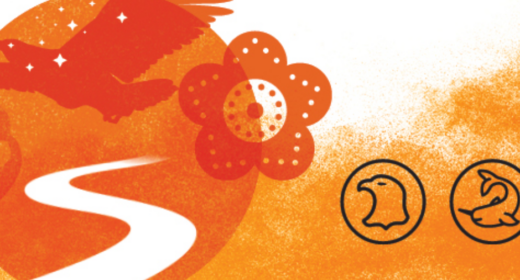There is no doubt that the culture and traditions of indigenous peoples should be preserved. This is especially true for First Nations people in Canada, who over the years have had to contend with European diseases, active displacement from their land, and assimilation policies. So it is understandable that some First Nations have enacted tough rules to ensure their traditions and culture are kept alive. However, recent eviction letters sent to non-native residents in Kahnawake, Québec have some questioning the fairness and legality of the band’s membership by-law.
Section 81 of the Indian Act allows the council of a First Nations band to make by-laws applicable to their reserve lands, encompassing “the residence of band members and other persons on the reserve”. These by-laws are subject to approval by the Minister of Aboriginal Affairs. The Kahnawake Membership Law dates back to a moratorium on mixed marriage in 1981 and the Kahnawà:ke Mohawk Law and Moratorium on Mixed Marriages from 1984, but up until recently has only been sporadically enforced. The law has been dubbed the “marry out, stay out” law. It states in section 20.1 that any member of the band who is married to or in a common-law relationship with a non-indigenous person “will have their entitlement to receive any of the benefits and services to which they would otherwise be entitled as a member of the Kanien’kehá:ka of Kahnawá:ke, suspended”, including their right to live on reserve land.
Forty residents living on the Kahnawake reserve received eviction notices in October last year. This latest round of evictions is supported by the Mohawk Council of Kahnawake (MCK), and was precipitated by the construction of a new house on the reserve by one woman and her non-native husband. It is estimated that there are around 100 non-native people living on Kahnawake land. However, because of the size of the reserve – it is only 5 hectares in area – there are limitations on how many people can live there, so the law is aimed at giving preference to Kanien’kehá:ka members.
The MCK oversees evictions on a periodic basis. The last time was in February 2010, when twenty-five non-natives living on the Kahnawake reserve were given ten days to move off the land. At the time Mohawk Grand Chief Mike Delisle rejected the idea that the evictions were racist. “This isn’t about ethnic cleansing”, he said, “it’s about self-preservation.” However, many disagreed with the council’s tactics. In an open letter, the Quebec Native Women association claimed the eviction process “ruptures the family unit and the community as a whole”. The evictions caused plenty of controversy, and were a divisive issue, even on the reserve.
After the latest round of evictions, nine people who had received notices initiated legal action against the MCK in November 2014. They are asking the Quebec Superior Court to declare that the Kahnawake Membership Law is unconstitutional under s.15 of the Canadian Charter of Rights and Freedoms, which states that “every individual is equal before and under the law and has the right to the equal protection and equal benefit of the law without discrimination”. They are also seeking $50,000 in damages for each plaintiff – they allege they were subjected to harassment and intimidation – and are requesting that the MCK issue a statement declaring that they are entitled to live on the reserve with their spouses. In a press release, the council responded by stating that the appropriate forum for resolving such issues is within the Kahnawake community, not a Canadian court room, and vowed to defend their right to make their own laws in respect to membership.
Waneek Horn-Miller, a former Olympic athlete and now an outspoken human rights activist, lives on the Kahnawake reserve with her non-native partner and their two children, and is one of the plaintiffs in the lawsuit. Horn-Miller has criticized not only the council’s actions, but also the measurement of Kanien’kehá:ka status, which is essentially along bloodlines. She said that “nowhere in the Indian Act does it require an individual to have cultural or linguistic knowledge, provide a community contribution or even simply have community recognition”, attributes she argues are more important than simple genetics. Horn-Miller believes that eviction by-laws, while aiming to preserve and strengthen First Nation communities, in fact fracture and weaken them.
Constitutional lawyer Julius Grey is representing the members of the Kahnawake Mohawk band in the case opposing the by-law, which pits fundamental Charter rights against the right for First Nation autonomy. While the evictions are a clear infringement of an individual’s right to be protected from discrimination, it could be argued that the actions of the Kahnawake council to pass by-laws of this nature are perfectly legal and in accordance with the Indian Act. Julius Grey said that “it’s clear that there was a terrible injustice committed that we would like to repair – but that repair in my view will have to be done within the Charter limits.” He is referring to section 25 in the Charter, which states that: “The guarantee in this Charter of certain rights and freedoms shall not be construed so as to abrogate or derogate from any aboriginal, treaty or other rights or freedoms that pertain to the aboriginal peoples of Canada”.
The issue of eviction notices on reserves hinges on the need to strike a balance between the right of First Nations people to protect their culture, and also the inherent human rights of all individuals living on reserves. It raises questions on how identity and culture are preserved, and to what extent a person’s protected rights can be compromised for a perceived “greater good”. If the lawsuit makes it to trial, it will be interesting to see how Canadian courts deal with this highly sensitive issue.


